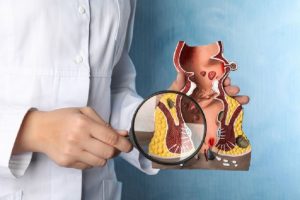Services
Fistula

Fistulas are abnormal tunnels or passageways that form between two organs or between an organ and the skin. They can develop due to various reasons and can occur in different parts of the body, including the digestive tract, urinary system, and reproductive organs.
Causes of Fistulas
Fistulas can be caused by conditions such as infection, inflammation, trauma, or surgery. Inflammatory diseases like Crohn’s disease and infections such as tuberculosis can also lead to the formation of fistulas. In some cases, fistulas develop as a complication of surgery or injury.
Symptoms of Fistulas
The symptoms of fistulas depend on their location and severity. Common symptoms include persistent drainage of fluid, pus, or stool from an opening in the skin or another part of the body. Other signs may include pain, swelling, redness, and recurrent infections in the affected area.
Treatment of Fistulas
Treatment for fistulas aims to close the abnormal passageway, alleviate symptoms, and prevent complications. The appropriate treatment approach depends on the cause, location, and severity of the fistula. Options may include:
1. Medications: Antibiotics or anti-inflammatory drugs may be prescribed to control infections and reduce inflammation associated with fistulas.
2. Surgery: Surgical intervention may be necessary to repair the fistula and restore normal anatomy. The type of surgery performed depends on factors such as the size and complexity of the fistula.
3. Wound Care: Proper wound care is essential to prevent infections and promote healing, especially for fistulas that drain through the skin.
4. Lifestyle Modifications: Making dietary changes and adopting healthy habits can help manage symptoms and improve overall health, especially for fistulas related to conditions like Crohn’s disease.
It’s important to consult a healthcare professional for proper diagnosis and treatment of fistulas. Early intervention can help prevent complications and improve the quality of life for individuals affected by these abnormal passageways.

